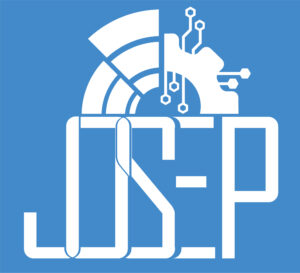Carbon fibre-reinforced polymer composites (CFRPCs) have drawn considerable interest, highlighting their exceptional mechanical properties, including high strength-to-weight ratio, corrosion resistance, and fatigue performance. Carbon fibers serve as the primary load-bearing element, while polymer matrices such as PVC, polyester, and epoxy distribute loads and protect the fibers. The optimization of the mechanical performance of these CFRPCs is highly essential to ensure their suitable application in the automotive industry. Therefore, the study focuses on improving safety through the evaluation of tensile properties and energy absorption capabilities across different configurations. The study introduced three CFRP composites—CF-PVC, CF-Epoxy, and CF-Polyester— at various fiber orientations, such as 0,15, 30, 45, 60, and 75 degrees. The effect of different fiber orientations on the Tensile stress-strain behaviour was investigated. The study indicates that the effect of fiber orientation was quite similar for all the proposed CFRPCs. The tensile stress is relatively higher at 0° arrangement, while the tensile stress decreases along with the elevation of the angle of fiber orientation. The exhibited tensile stress was quite low regarding the lower angle. The study also shed light on the energy density of CFRPCs and the influence of orientation angle. It is shown that at lower fibre orientations, especially 0° and 15°, the composites demonstrate higher energy density and greater elastic deformation before failure. Beyond 15°, a significant drop in energy density and non-linearity is observed across all composites. It should be noted that CF-Epoxy outcompetes the other composite regarding both tensile stress and energy density behaviour
Skip to content
Skip to footer
Original Research Article
Nanomaterials
Mechanical performance analysis of carbon fiber reinforced polymer composites: Influence of fiber orientation and polymer matrix
Ehasanul Islam Rafi1, Hriday Kumar Gharamy2, Anik Molla3*, Hasan Muhommod Robin2
1Department of Industrial and Production Engineering, Bangladesh University of Engineering & Technology, Dhaka-1000, Bangladesh
2Department of Mechanical Engineering, Rajshahi University of Engineering & Technology, Rajshahi- 6204, Bangladesh
3Department of Glass and Ceramic Engineering, Rajshahi University of Engineering & Technology, Rajshahi- 6204, Bangladesh
This work is licensed under CC BY-SA 4.0
Downloads : 1440
Abstract
References
How to Cite
- ACM
- ACS
- APA
- ABNT
- Chicago
- Harvard
- IEEE
- MLA
- Turabian
- Vancouver
Ehasanul Islam Rafi1, Hriday Kumar Gharamy2, Anik Molla3*, Hasan Muhommod Robin2
I.H. 2024. Mechanical performance analysis of carbon fiber reinforced polymer composites: Influence of fiber orientation and polymer matrix. Journal of Science and Engineering Papers .
February 21, 2025.
Doi: 10.62275/josep.25.1000021.
Ehasanul Islam Rafi1, Hriday Kumar Gharamy2, Anik Molla3*, Hasan Muhommod Robin2
Mechanical performance analysis of carbon fiber reinforced polymer composites: Influence of fiber orientation and polymer matrix.
journal 2025, 21.
Ehasanul Islam Rafi1, Hriday Kumar Gharamy2, Anik Molla3*, Hasan Muhommod Robin2
I.H. 2024. Mechanical performance analysis of carbon fiber reinforced polymer composites: Influence of fiber orientation and polymer matrix. .Journal of Science and Engineering Papers .
21 (1).
https://doi.org/10.62275/josep.25.1000021.
Ehasanul Islam Rafi1, Hriday Kumar Gharamy2, Anik Molla3*, Hasan Muhommod Robin2
I.H. Mechanical performance analysis of carbon fiber reinforced polymer composites: Influence of fiber orientation and polymer matrix. Journal of Science and Engineering Papers .
2025.
Ehasanul Islam Rafi1, Hriday Kumar Gharamy2, Anik Molla3*, Hasan Muhommod Robin2
2024." Mechanical performance analysis of carbon fiber reinforced polymer composites: Influence of fiber orientation and polymer matrix." Journal of Science and Engineering Papers .
21 (1).
https://doi.org/10.62275/josep.25.1000021.
Ehasanul Islam Rafi1, Hriday Kumar Gharamy2, Anik Molla3*, Hasan Muhommod Robin2
I.H. 2024. " Mechanical performance analysis of carbon fiber reinforced polymer composites: Influence of fiber orientation and polymer matrix." Journal of Science and Engineering Papers .
21 (1).
https://doi.org/10.62275/josep.25.1000021.
Ehasanul Islam Rafi1, Hriday Kumar Gharamy2, Anik Molla3*, Hasan Muhommod Robin2
, "Mechanical performance analysis of carbon fiber reinforced polymer composites: Influence of fiber orientation and polymer matrix". .Journal of Science and Engineering Papers .
journal Feb, 2025.
Ehasanul Islam Rafi1, Hriday Kumar Gharamy2, Anik Molla3*, Hasan Muhommod Robin2
"Mechanical performance analysis of carbon fiber reinforced polymer composites: Influence of fiber orientation and polymer matrix." Journal of Science and Engineering Papers .
Feb, 2025.
https://doi.org/10.62275/josep.25.1000021.
Ehasanul Islam Rafi1, Hriday Kumar Gharamy2, Anik Molla3*, Hasan Muhommod Robin2
"Mechanical performance analysis of carbon fiber reinforced polymer composites: Influence of fiber orientation and polymer matrix." Journal of Science and Engineering Papers .
(Feb 21, 2025).
https://doi.org/10.62275/josep.25.1000021.
Ehasanul Islam Rafi1, Hriday Kumar Gharamy2, Anik Molla3*, Hasan Muhommod Robin2
Mechanical performance analysis of carbon fiber reinforced polymer composites: Influence of fiber orientation and polymer matrix. Journal of Science and Engineering Papers .
journal [ Internet ] 21 Feb, 2025.
[ Cited 21 Feb, 2025 ]
21 (1).
https://doi.org/10.62275/josep.25.1000021.
Keywords
carbon fiber reinforced polymer composites, fiber orientation, polymer matrix, FEA, ANSYS


